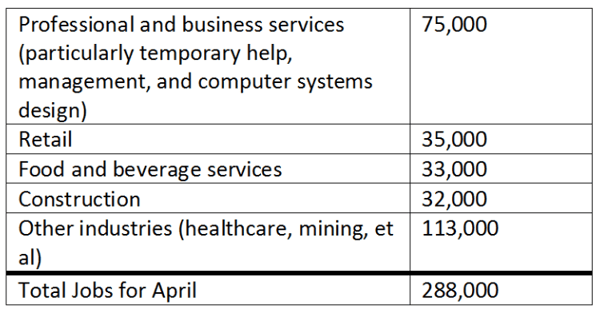
Recently, the unemployment rate dropped to its lowest point in over five years, settling at 6.3% in April. While that number looks encouraging, the truth may be a little less straightforward. Several factors, both positive and negative, contributed to bringing about the 6.3% unemployment rate. Still, when all is told, there’s much to be hopeful about.
More Jobs, Better Economy
According to Wanted Analytics, the U.S. economy added an average of 199,000 jobs per month over the past year. In April, that number jumped by nearly 50%. The job growth breakdown looks like this:
Unemployment rates fell for both short-term unemployment and those who have been unemployed for at least six months.
When 6.3% Isn’t Really 6.3%
Companies across multiple sectors saw gains in hiring, meaning more jobs for more people. But at the same time, the labor force itself experienced losses. These losses can be attributed both to several factors:
- Baby boomers entering retirement
- People receiving disability before retirement
- People reaching the end of their unemployment benefits and dropping out of the workforce
The 6.3% unemployment rate does not take into account people who are working part time but want to work full time, nor does it consider those who have been unable to find work and have stopped looking. Still, a broad measure of unemployment (which does include those categories of unemployed), fell to 12.3 percent, which is the lowest it has been in twenty years.
Talent Shortage and Unemployment
Many companies have found that despite the numbers of people looking for work, they still have trouble finding candidates with the specific requirements needed to fill certain positions. In some cases,it pays to broaden your search to include those who may not have particular types of experience, but who could be quickly trained. In other cases (particularly in the IT industry), those requirements are essential for the job. That’s where an experienced RPO company can help by identifying and vetting candidates in order to reduce the time and money spent on recruiting.
As we continue to see positive gains in the economy, the hope is that those gains will be accompanied by increases in wage earnings. Ultimately, the more financially secure people feel, the more they’ll be willing to increase purchasing decisions. And that’s good news for everyone.


